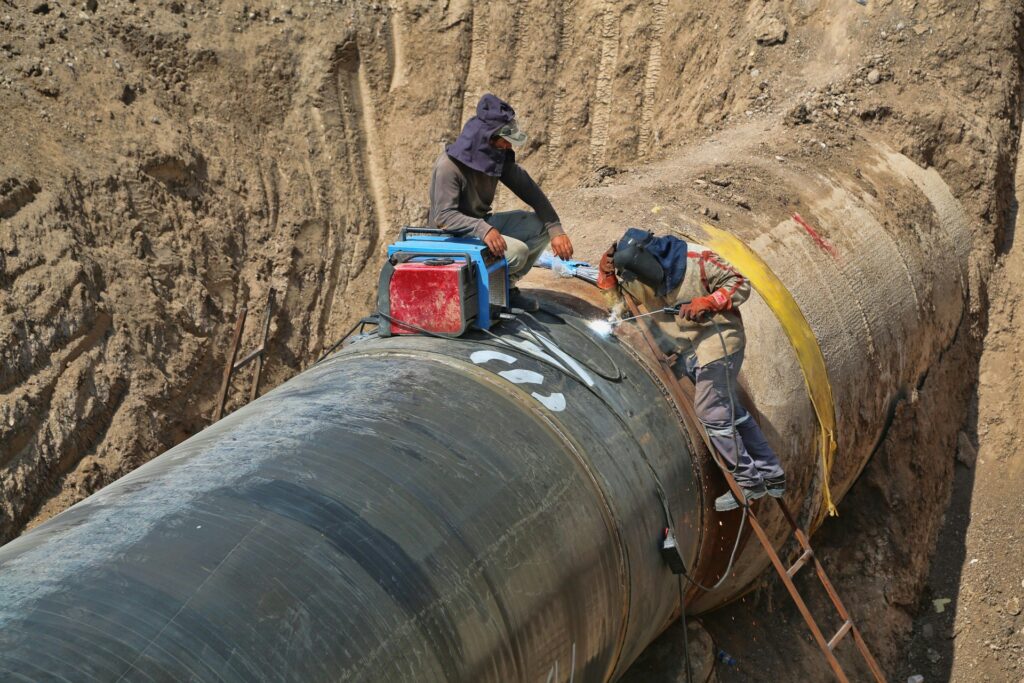The Congo-Russia oil pipeline, a major energy infrastructure project under a public-private partnership (PPP), is set to launch by the end of 2025. The announcement came from a meeting on June 19, 2025, in St. Petersburg. Congo’s Minister of International Cooperation and PPP Promotion, Mr. Denis Christel Sassou Nguesso, and Russian Deputy Minister of Energy, Mr. Pavel Sorokin, confirmed the timeline. They met during the St. Petersburg International Economic Forum (SPIEF). The project will connect Pointe-Noire, Loutété, Maloukou, and Tréchot via a 450-kilometer pipeline. The PPP structure includes a Russian developer, Congo’s National Petroleum Company (SNPC), and local operators. Currently, Congo produces 336,000 barrels of oil daily. This project could boost exports by 15% in three years. The Congo-Russia oil pipeline fits into Congo’s infrastructure plan and strengthens bilateral economic ties.
Both ministers agreed to establish a monitoring mechanism. This framework will include scheduled reviews and progress reports. It aims to keep the project on track and build investor confidence. Congo’s PPP reforms prioritize transparency, accountability, and risk management. These reforms will guide the pipeline’s execution. The Congo-Russia oil pipeline is expected to improve transport logistics and reduce crude export delays. According to the African Development Bank, PPPs can cut project delays by up to 30%. Congo seeks to allocate its public funds wisely while boosting economic development. This PPP helps diversify revenue sources and supports national growth. Transitioning large-scale energy projects to PPPs allows better resource management. The project will not only serve energy needs but also become a model for regional PPP implementation.
This project signals deeper energy diplomacy. Both countries want to strengthen ties through infrastructure with high economic impact. Since 2010, Russian investments in African energy have topped $20 billion. Russia’s role in this project showcases its growing presence in Africa. It also reflects Congo’s interest in attracting foreign expertise. This partnership includes technology transfer, capital investment, and operational guidance. Congo benefits from Russia’s engineering and construction capabilities. In return, Russia gains access to Congo’s upstream oil assets. The International Energy Agency projects Africa will contribute 10% of global oil growth by 2030. This pipeline could attract further investment in refining and gas development. Public-private partnerships in energy can lead to long-term cooperation. The pipeline marks the beginning of broader bilateral ventures.
Minister Sassou Nguesso also visited Saint Petersburg Mining Institute. Founded in 1773, the institute is Russia’s oldest engineering university. It specializes in energy, geology, and mining sciences. The visit aimed to promote educational collaboration. The minister met with the university’s rector to discuss a partnership with Denis Sassou-N’Guesso University. This collaboration will include joint degrees, research, and skills transfer. Congo plans to build local capacity in pipeline management and energy operations. Such initiatives support long-term sustainability in infrastructure projects. Technical education is vital for the Congo-Russia oil pipeline’s success. The collaboration can produce skilled workers to operate and maintain energy systems. Education partnerships improve scientific cooperation and ensure self-sufficiency. Congo aims to build a knowledge-based energy sector for future generations.
The Congo-Russia oil pipeline project joins a series of PPP-led projects. Congo’s infrastructure needs are estimated at $2.5 billion annually. Public-private partnerships offer a path to mobilize private capital. Congo has reformed its PPP laws and created a national PPP unit. Other PPPs include water pipelines, transport corridors, and renewable energy projects. The Pointe-Noire-Loutété pipeline fits into Congo’s 2022–2030 development plan. It promotes private sector involvement and regional connectivity. International support from World Bank, Afreximbank, and IFC adds momentum. PPPs in energy ensure shared risk, innovation, and financial discipline. This project may become a benchmark for future deals. With clearer laws and improved procurement, Congo is attracting new investors. This model supports economic resilience and infrastructure expansion in Central Africa.
Source:





